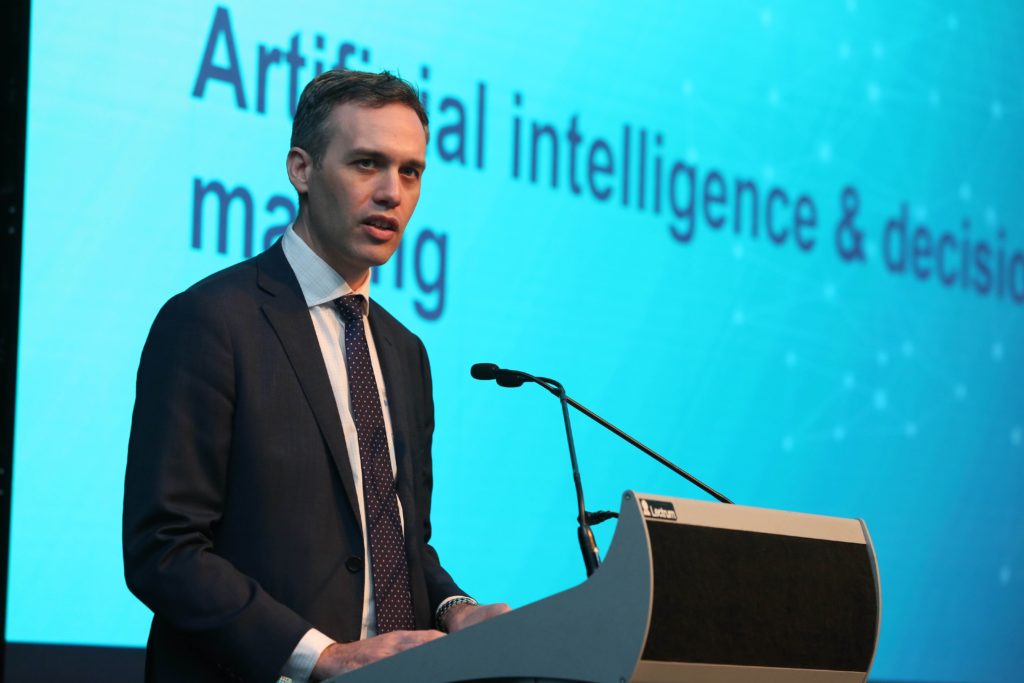Technology and Human Rights: Beyond Ethics?

Human Rights Commissioner Edward Santow speaking at the Human Rights and Technology conference. (Photo Jason McCormack)
Algorithms deciding who gets released on bail, artificial intelligence choosing who to save in a car crash, new tech-fuelled attacks on democracy. The threats that emerging technologies pose to our human rights, as well as the possibilities to enhance them, continue to grow. How to ensure our rights are protected in this rapidly evolving world is being explored by a major Australian Human Rights Commission project.
The Commission’s Human Rights and Technology Project was launched at a conference in Sydney on July 24 hosted by Human Rights Commissioner Edward Santow.
Australian and international speakers from industry, government, civil society and academia explored the human rights implications of social media, AI, data markets, and other innovations.
About 450 attendees heard from Vice-president at Microsoft Corporation, Steve Crown, Co-founder of the US Center for Humane Technology Aza Raskin, Salesforce Research Architect Kathy Baxter and Australia’s Chief Scientist Dr Alan Finkel, among many others.
Commissioner Santow released an issues paper at the conference, which marked the beginning of the project’s consultation phase.
The issues paper asks how we should protect human rights in the development and use of new technologies. It asks what protections are needed when AI is used in decisions that affect our basic rights – in areas as diverse as insurance, social media and the criminal justice system. It also invites ideas on how we can make technology more inclusive.
The issues paper guides the conversation the Commission will have with industry, government, academia and civil society over the coming months. A discussion paper will be published in early 2019 and a final report and recommendations will be delivered by early 2020.
This project will create a blueprint for responsible innovation, with a framework for how Australia should protect our rights and freedoms,
Commissioner Santow said.
Many of these challenges are global: we need to work collaboratively with leaders from around the world to ensure that human rights are protected and promoted through new technology.
Working collaboratively with industry and government, we will develop a practical roadmap for reform in Australia.
Human rights must shape the future these incredible innovations have made possible. We must seize the opportunities technology presents but also guard against threats to our rights and the potential for entrenched inequality and disadvantage.
The issues paper and more information about the project is available at tech.humanrights.gov.au.